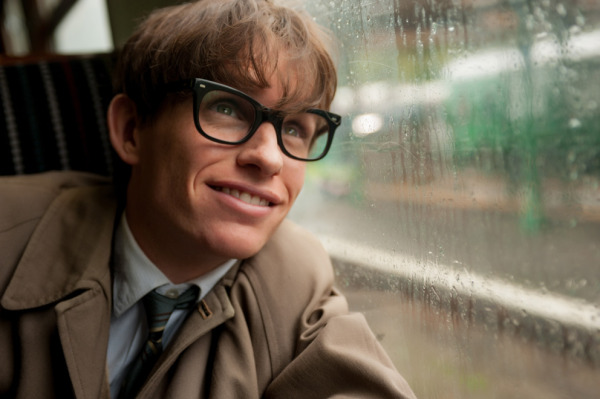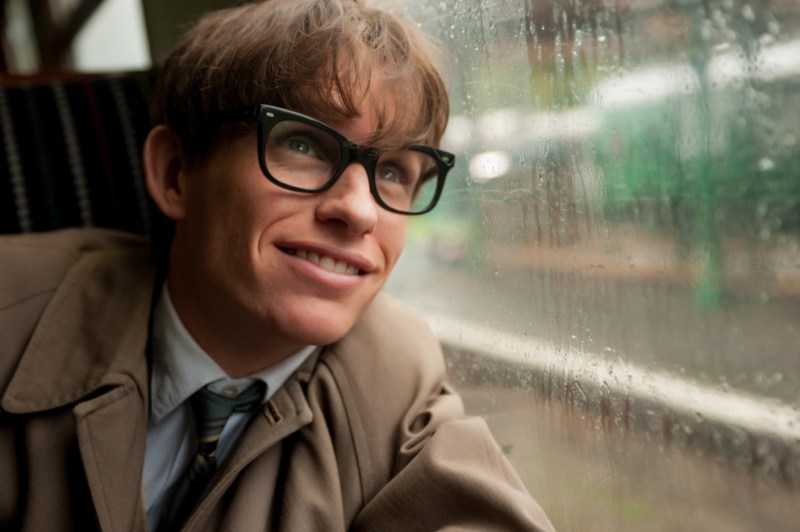
So much has been said of Stephen Hawking – physicist, author, explainer-of-space-time and the universe – that it’s occasionally difficult to disentangle the man from the icon. “The Theory of Everything,” starring Eddie Redmayne (fresh off Tom Hooper’s “Les Misérables”) and written by Anthony McCarten, gives its audience some grounding in Hawking’s personal life – in particular, his relationship with his first wife, Jane Hawking. The Daily spoke with both Redmayne and McCarten about their work on the film, which opens today in Palo Alto.
The Stanford Daily (TSD): How did you mentally and physically prepare to take on such a complicated role?
Eddie Redmayne (ER): When I got cast, I had about four months before filming started. I tried to educate myself about the science, in the one sense, but also, really learning about ALS was incredibly important. So I went to a neurology clinic in London, and I would go every week or two over that period, and I would meet with a specialist there. And she would introduce me to people suffering from this really very brutal disease. Some of them would invite me to their homes, so you could see not only the physical effect [of the disease], but also the extraordinary humor and amazing passion for life many people suffering from this disease have.
Finally, it was meeting Stephen and Jane and Jonathan right before filming. I really tried to approach [the film] in a three-dimensional way.
TSD: What was your thought process when you were offered the role?
ER: I had chased the film pretty hard – I had been at university at Cambridge, and he was a rock star there. When I was sent the script, I thought it was going to be a biopic of his life, and it transpired that it was this extraordinary and quite complex love story. So it subverted all my expectations. From that moment, I knew it’d be the most amazing privilege to play him. When I got cast, I had been pursuing [the role] – the moment when I got called up and told that I got the part was a sort of sucker punch of fear.
TSD: How has studying and portraying Stephen Hawking in “The Theory of Everything” influenced your Theory of Everything?
ER: The amazing thing about spending time with Stephen is how he describes every day and moment as a gift for him – how he pulls himself out of a melancholia and has managed to live every second of every minute of his life as passionately and fully as possible. I feel like I certainly get caught up in the day-to-day banalities of life, and we forget that [we] only have one shot at this. So, really, trying to live fully is what I’ve taken away from this.
TSD: What was the most surprising thing you learned about Stephen Hawking?
ER: When I met him, it was his humor – I knew he had a sort of self-deprecating sense of humor through having done “The Simpsons” and “The Big Bang Theory,” but this sort of wit – it was an extraordinarily incisive wit and sense of timing. There was also this mischievous glint that he had. That was the thing I took away. Even though it’s difficult for him to communicate, he has a very special, powerful feel to him, when you spend time with him.
TSD: In what ways, in your creation of this film, did you feel that you were proving or disproving a theory, or a message?
Anthony McCarten (AM): I didn’t start with a thesis. I started with an image: The closest I came to disproving an original ambition was that I started at the end. My first image was that Stephen Hawking spent a lot of his early career wanting to wind back the clock of time to the beginning of the universe, and in making the film, I knew I wanted to end the film with the film winding back to the beginning.
Stephen Hawking then spent the second half of his career disproving what he set out to [do]. And I think that’s the definition of a first-rate mind – that he isn’t wedded to a dogma or just looking for evidence to support his position but is open to anything and is prepared to completely flip and argue the opposite case if the evidence suggests that it’s the right thing to do. The message there is intellectual honesty, and that’s what I tried to bring to the script.
TSD: There are some subtle references to God and religion throughout the story. Can you elaborate on your intentions in including these?
AM: It was absolutely incumbent upon me to include the question of the existence of God, mainly because of its impact upon the marriage: Jane was definitely a God-fearing, church-going Anglican, and religion is important to her. Stephen is either an atheist or an agnostic, depending on the day of the week. He’s very mischievous. It’s hard to pin him down on the God question. And within their marriage, they carried on the debate that’s going on in society. So this was something which was part of their discourse on society.
Secondly, Stephen’s ideas almost took us to the threshold of this question. He doesn’t really want to get into the God debate, but when he started coming up with theories that the universe had no beginning, people jumped in and said, “So, there is no God.” And his position was, “No, I’m just talking about the equations don’t require a God to balance.” During his whole professional career, he’s been dragged into the God argument.
TSD: When you initially met Jane Hawking about turning her book into her screenplay, how was receptive of the idea was she?
AM: No, she was cautious. She viewed me with the correct level of circumspection you should have for anybody showing up at your door saying, “I want to make a movie of your life.” But she invited me in, and I sat in her living room and pitched this movie to her. This was in 2004…at the end of the conversation, she didn’t give me what I wanted, which was permission to option her book, but she did say, “look. Go away, write your script, I’ll read it, and then we’ll talk again.” We built trust, and Jane, her children, and Stephen were finally able to grow into the idea of a film made about this sensitive and delicate material.
TSD: There was surprisingly little physics in this film. Could you explain this decision?
AM: I had three threads to this story that I had to serve in equal measure: One was the physics, and I absolutely didn’t ignore his achievements in physics, and I covered all the main breakthroughs that he had. But there’s also this incredible love story, which I don’t think has a precedent in film. And I felt that I was serving this story as well. So when I presented the concept of this movie to Jane in 2004, I gathered the image of a triple helix, of these three threads being wound around each other. It was a public life, but also the private life, and I tried to get a balance between all three.
TSD: What’s the one thing the audience should take away from the film?
AM: If you keep an active, curious mind, an open mind and a sense of humor, then you can overcome just about anything life throws at you.
“The Theory of Everything” opens at Palo Alto Square on Friday, Nov. 14.
Contact Madelyne Xiao at madelyne ‘at’ stanford.edu.
